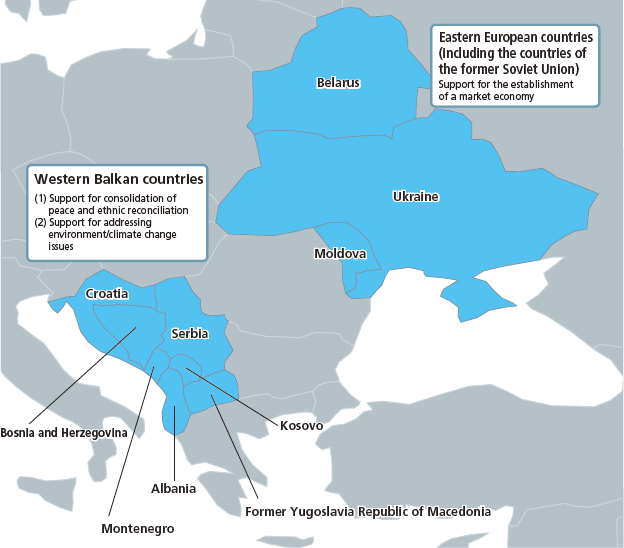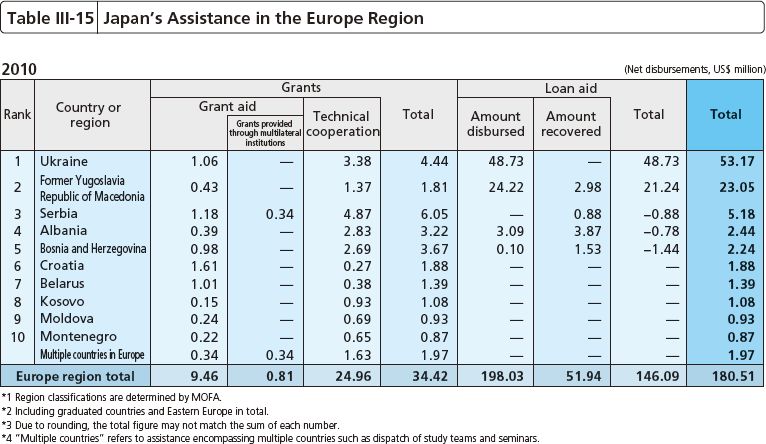Japan's Official Development Assistance White Paper 2011
8. Europe
Many of the countries in Central and Eastern Europe and the European region of the former Soviet Union that had previously been under communist systems have subsequently achieved democratization and liberalization. They are currently working toward economic development based on market economies under democratic administrations. Japan has provided assistance for efforts such as the transition to market economies, reconstruction of economic infrastructure, and addressing environmental issues. The aim is to keep stability and development in these regions and in Europe as a whole, as well as to create relationships that can share the universal values (human rights, democracy, market economy, and rule of law).
<Japan's Efforts>
Reforms had once slowed down in the former Yugoslavia and other countries of the Western Balkans due to the impact of conflicts which occurred in the 1990s. However, assistance from donor countries and international organizations and their own efforts for reform have enabled them to graduate from the stage of receiving aid for reconstruction. Currently, they are at the stage of requiring assistance aimed at sustainable economic development. Japan has provided assistance on the three main pillars of "consolidation of peace," "economic development," and "regional cooperation" that were confirmed at the Ministerial Conference on Peace Consolidation and Economic Development of the Western Balkans that was held jointly by Japan and the EU in 2004, as its priority areas for assistance. Japan also continues to provide assistance with the "consolidation of peace and ethnic reconciliation" and "addressing environmental and climate change issues" as its particular priority policies. Ukraine and Moldova (the former Soviet States) are geopolitically and diplomatically important since they are located between Russia and the EU. The stability and sustainable development of these countries are indispensable for the stability of Europe as a whole. Japan assists in efforts to consolidate democracy and establish market economies.
In light of disparities in economic development in Europe, Japan will gradually reduce assistance to EU's new member countries, deeming them as having graduated from ODA, and will encourage them to become donors to provide aid to less developed countries in Europe. At the same time, Japan will continue appropriate support to the less developed countries like those of the Western Balkans and Ukraine, considering their economic levels. In addition, regardless of the country receiving the aid, Japan intends to focus more on results and effective and efficient aid by utilizing Japan's knowledge and experience, while paying attention to the activities of other donor countries and international organizations. In addition, some of the former recipients of Japanese ODA were removed from the list of the countries eligible for ODA assistance when they joined the EU, and are now beginning to fulfill an international role as donor countries. Japan works to share its experiences with those countries as a donor country.
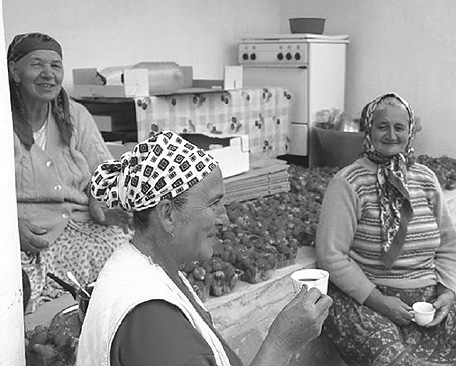
Selling strawberries that were cultivated through cooperation between ethnic groups as part of the "Project for Confidence-Building in Srebrenica on Agricultural and Rural Enterprise Development" in Bosnia-Herzegovina (Photo: JICA)
[Bosnia-Herzegovina]
"The Project for Confidence-Building in Srebrenica on Agricultural and Rural Enterprise Development"
Technical Cooperation Project (September 2008- Current)
The Srebrenica region in eastern Bosnia-Herzegovina was a scene of fierce ethnic conflicts between Islamic residents and Serbian residents toward the end of the conflict in the 1990s. Distrust between the ethnic groups has also hindered development of the region. To address such problems, Japan focuses mainly on repatriated families and single-mother families, to facilitate economical independence of residents through restoration of agriculture and the livestock industry, revitalization of communication and interaction between the ethnic groups through agricultural training, and promotion of the repatriation of refugees and internally displaced persons. In addition, Japan engages to spread the knowledge and experience gained from the project widely throughout the region. This project includes thirteen activities, such as harvesting greenhouse vegetable, beekeeping, and operation of integrated kindergarten (playrooms), intended to build trust between the ethnic groups that had been in conflict in the past.
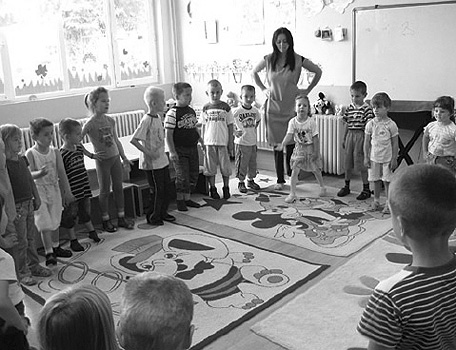
A childcare playroom where children from two different ethnic groups play together (Photo: JICA)
[Montenegro]
"The Project for Urgent Rehabilitation of Water Supply System in the Capital City Podgorica"
Grant Aid (May 2010 - Current)
The establishment of the socio-economic infrastructure in Montenegro has lagged due to the impact of conflict in the 1990s. In particular, for water supply system, pumps have been significantly exceeded its durable years, and cause many problems interfering with people's lives. The "Mareza 2" pump station serves approximately 45% of the water supply to the capital of Podgorica, but dilapidation has led not only to frequent water shortage, but also abnormal pump vibration. The pump station could have stopped functioning at any time. To improve these problems, Japan has utilized approximately ¥600 million of grant aid to replace pump equipment to ensure stable supply of safe water to the capital. Implementation of this project will make it possible to supply water to 76,000 more residents. In addition, it will be possible to supply water 24-hour per day to over 25,000 residents who suffer chronic water shortage.
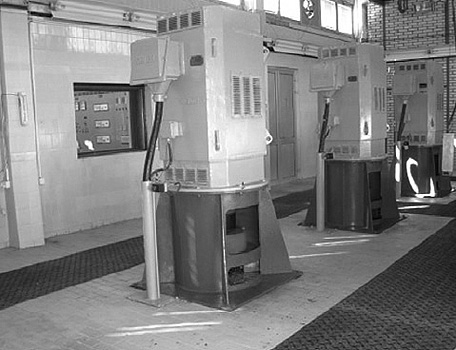
A view of Mareza Pump Station 2 (Photo: JICA)
Japan's international cooperation policy in the Europe Region
